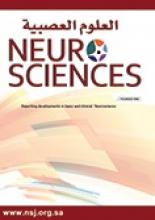AUGUST 07, 2023 - Depression and anxiety are thought to increase a person’s risk of developing cancer, but research results have been inconclusive. In an analysis of multiple studies from the Netherlands, the United Kingdom, Norway, and Canada, investigators found that depression and anxiety are not linked to higher risks for most types of cancer among this population. The analysis is published by Wiley online in CANCER, a peer-reviewed journal of the American Cancer Society.
Experts have suspected that depression and anxiety may increase cancer risk by affecting a person’s health-related behaviors or by having biological effects on the body that support cancer development. Some research has supported an association between depression, anxiety, and cancer incidence, while other investigations have found no or negligible associations.
To provide additional insights, Lonneke A. van Tuijl, PhD, of the University Medical Center Groningen, and her colleagues examined data from the international Psychosocial Factors and Cancer Incidence consortium, which includes information from 18 prospective study groups with more than 300,000 adults from the Netherlands, the United Kingdom, Norway, and Canada.
The team found no associations between depression or anxiety and overall, breast, prostate, colorectal, and alcohol-related cancers during a follow-up of up to 26 years. The presence of depression or anxiety was linked with a 6% higher risk of developing lung cancer and smoking-related cancers, but this risk was substantially reduced after adjusting for other cancer-related risk factors including smoking, alcohol use, and body mass index. Therefore, this analysis supports the importance of addressing tobacco smoking and other unhealthy behaviors including those that may develop as a result of anxiety or depression.
“Our results may come as a relief to many patients with cancer who believe their diagnosis is attributed to previous anxiety or depression,” said Dr. van Tuijl. “However, further research is needed to understand exactly how depression, anxiety, health behaviors, and lung cancer are related.”
Full Citation: “Depression, anxiety, and the risk of cancer: An individual participant data meta-analysis.” Lonneke A. van Tuijl, Maartje Basten, Kuan-Yu Pan, Roel Vermeulen, Lützen Portengen, Alexander de Graeff, Joost Dekker, Mirjam I. Geerlings, Adriaan Hoogendoorn, Femke Lamers, Adri C. Voogd, Jessica Abell, Philip Awadalla, Aartjan T. F. Beekman, Ottar Bjerkeset, Andy Boyd, Yunsong Cui, Philipp Frank, Henrike Galenkamp, Bert Garssen, Sean Hellingman, Martijn Huisman, Anke Huss, Trynke R. de Jong, Melanie R. Keats, Almar A. L. Kok, Steinar Krokstad, Flora E. van Leeuwen, Annemarie I. Luik, Nolwenn Noisel, N. Charlotte Onland-Moret, Yves Payette, Brenda W. J. H. Penninx, Ina Rissanen, Annelieke M. Roest, Rikje Ruiter, Robert A. Schoevers, David Soave, Mandy Spaan, Andrew Steptoe, Karien Stronks, Erik R. Sund, Ellen Sweeney, Emma L. Twait, Alison Teyhan, W. M. Monique Verschuren, Kimberly D. van der Willik, Judith G. M. Rosmalen, and Adelita V. Ranchor. CANCER; Published Online: August 7, 2023 (DOI: 10.1002/cncr.34853).
URL Upon Publication: http://doi.wiley.com/10.1002/cncr.34853
Copyright © 2021 The Cochrane Collaboration. Published by John Wiley & Sons, Ltd., reproduced with permission.
- Copyright: © Neurosciences
Neurosciences is an Open Access journal and articles published are distributed under the terms of the Creative Commons Attribution-NonCommercial License (CC BY-NC). Readers may copy, distribute, and display the work for non-commercial purposes with the proper citation of the original work.






